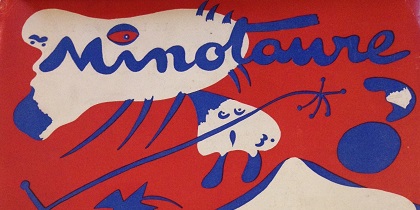Lobsters, Regionalism, and Much More: T. S. Eliot and British Surrealism in the 1930s
April 27, 2016
This blog post was written by School of English PhD student, Xiaofan Xu. At first glance, T. S. Eliot and surrealism just do not seem to click. Eliot is known to have rejected a manuscript on French surrealism in 1926 for publication in his Criterion, with a dismissive comment that ‘I cannot feel that the …
Assessment Days…wait, they still have those?
April 25, 2016
This blog post was written by final year English and Philosophy student, Rishi Davda. As a final year, I try to balance my time between reading lists, sleeping, and job applications. Occasionally one of those job applications, which you submit six minutes before the deadline, actually goes beyond the dreaded mass email response beginning with …
Archaeology at Rendlesham
April 22, 2016
This blog post was written by Dr. John Baker, Senior Research Fellow, Institute for Name-Studies. We’re familiar with stories about richly furnished burials such as Taplow in Buckinghamshire and Sutton Hoo in Suffolk, where the dead were placed under large mounds and accompanied by treasures. Increasingly, we’re able to shed light on the wider landscape of …
The Book, The Tea, The Place to Be…
April 18, 2016
This blog post was written by final year American Studies and English student, Radhika Chond, from the School of Cultures, Languages and Area Studies. It’s that time of year again when Easter is somehow all done and dusted and you’re caught out wondering where the time has raced off to… In and amongst those academic …
Q&A with Svenja Adolphs, GRT Lead for Cultures and Communication
April 6, 2016
Taken from the Research Blog posted on April 1, 2016, by Michael Jennings This is the fourth of our monthly Q&As with our five Global Research Theme (GRT) leads, for you to find out about who they are, their research and what it means to lead one of the University’s five GRTs. Read previous Q&As …
The Experience of Writing and Directing Ambergate Reservoir
April 1, 2016
This blog post was written by second-year English student, Emma White. In the autumn term, we were encouraged as second-year creative writers to embrace our potential to be contemporary. I found myself writing performance scripts without feeling restricted by traditional methods; instead, I was building on them. My characters had individual desires which controlled the …







Recent Comments